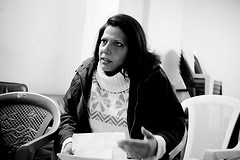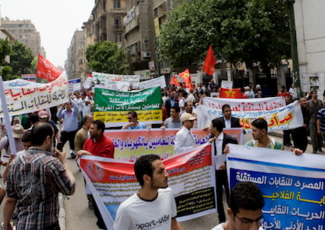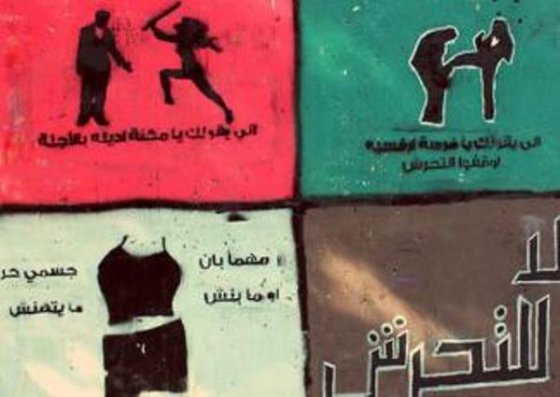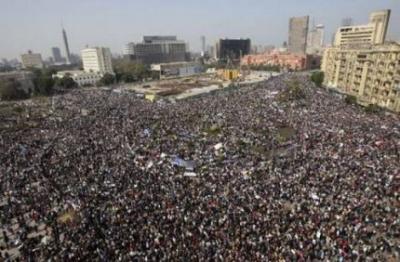αναδημοσίευση από menasolidarity (η έμφαση σε κάποια σημεία δική μας)
Al-Sisi’s “Permission” is a Deadly Poison
My comrades, the workers of Egypt are struggling for their rights and for a better Egypt. Egypt’s workers dream of freedom and social justice, they dream of work at a time when thieves who are called businessmen close down factories to pocket billions. Egypt’s workers dream of fair wages under the rule of a governments that are only interested in promoting investment at the expense of workers and their rights, and even their lives. Egypt’s workers dream of a better life for their children. They dream of medicine when they are sick, but they do not find it. They dream of four walls in which they can take shelter.
Since before the 25th of January and you have been demanding your rights, and your strikes and demonstrations for the same unanswered demands continued after Mubarak’s overthrow. Both the Muslim Brotherhood and the military have negotiated left, right and centre, not once having in mind your demands and rights. All they have in mind is how to put out the sparks you have lit with your struggle in times of darkness, even these sparks all burned in isolation from each other.
Did not the military forcibly end your strikes in Suez, Cairo, Fayyoum, and all over Egypt ? Did not the military arrest many of you and subject you to military trials just for practising your right to organize, strike, and protest peacefully? Have they not adamantly worked to criminalize this right through legislation banning all Egyptians from organizing peaceful protests, strikes, and sit-ins?
Then came Mursi and the Muslim Brotherhood, who followed in Mubarak’s footsteps with dismissals, arrests, and smashing strikes by force. It was Mursi who sent police dogs against workers at Titan Cement in Alexandria, acting through the Minister of the Interior and his men. The same police and army officers who are right now being carried shoulder-high are killers, the killers of honest, young Egyptians. They are the authorities’ weapon against us all – and always will remain so unless these institutions are cleansed.
The leaders of the Muslim Brotherhood are planning crimes against Egyptian people on a daily basis, which have caused the killing of innocent people, while the army and the police are facing these with brutal violence and murder. But let each of us remember, when do the army and police intervene? They intervene long after clashes have begun and are almost coming to an end, after blood has been spilled. Ask yourselves, why don’t they prevent these crimes committed by the Muslim Brotherhood against the Egyptian people before they start? Ask yourselves, in whose interest is this continuation of fighting and blood-letting? It is in the interest of both the leadership of the Muslim Brotherhood and the military together. Just as the poor are cannon-fodder for wars between states, Egypt’s poor, workers and peasants, are fuel for internal war and conflict. Has not the doorman’s innocent son been killed in Mokattam, and in Giza as well?







